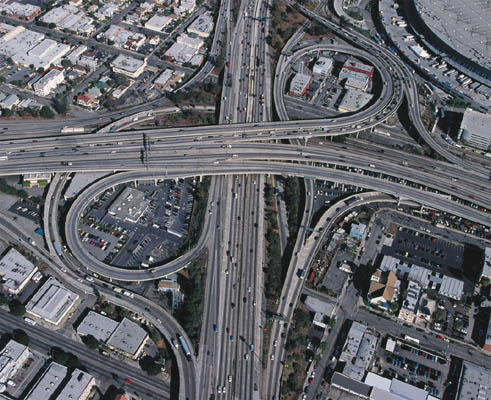As the president’s transportation proposal fades from the news cycle and we eagerly await the Senate Environment and Public Works Committee’s six-year reauthorization bill, here comes the House Republicans’ proposed budget for transportation and housing for next year.

Note: What the House GOP released yesterday wasn’t an authorization bill but an appropriations bill for 2015. So far, there is no authorization guiding transportation spending for 2015, and as such this appropriations bill says that its funding levels are “contingent on the enactment of new transportation authorization legislation.” Nothing can be appropriated that isn't authorized.
While previous GOP appropriations proposals have eliminated TIGER grant funding altogether, this proposal allocates $100 million for TIGER, down from the $600 million the program got this year. More horrifically, the GOP proposes to limit TIGER grants to projects that “address critical transportation needs,” defined as roads and bridges, ports and freight rail.
And just to be clear about what they mean, the GOP adds, “The legislation does not allow these funds to be used for non-essential purposes, such as street-scaping, or bike and pedestrian paths.” Also ineligible are transit projects that would be eligible for New Starts or other FTA grants, carpool projects, ADA compliance for sidewalks, highway and transit safety improvements, planning, congestion mitigation, intelligent transportation systems, anything related to congestion pricing (including electric toll collection and travel demand management), or recreational trails.
Honestly, if that’s what TIGER would become, maybe it would be best to zero it out altogether.
President Obama’s proposal, released last week, would double the TIGER program. Historically, TIGER has been a way cities and metro areas can bypass their states to go directly to the federal government for funds for multi-modal programs. Transit, biking and walking projects -- as well as freight projects that haven't always had a natural home in other federal funding programs -- have done very well with TIGER.
The rest of the GOP appropriations bill's cuts are mostly notable in their restraint. The bill hews to the bipartisan two-year budget resolution for 2014 and 2015 and not Paul Ryan's 2015 budget, which would have held transportation spending to the levels available in the Highway Trust Fund.
And while the committee is trying to cut some programs, the cuts aren’t as extreme as previous attempts have been. This time last year, House Democrats were lamenting “the twilight of the appropriations process” as the GOP rammed through a “grossly inadequate bill” that, thankfully, didn't stand a chance of becoming law.
So, the numbers: This bill would freeze highway spending at current levels -- $40.25 billion -- but cut transit by about 2 percent and rail by 12 percent. Amtrak capital funds would shrink from 1.05 billion to $850 million, while operations funding would stay level at $340 million. As usual, nothing is provided for high-speed rail.
New Starts funding for transit capital improvements would fall from $1.9 billion to $1.7 billion under the bill. Already, the LA Times is reporting that the transit authority in Los Angeles is nervous that a cut like this could endanger the $200 million the city was hoping to get for the Purple Line extension and for a downtown tunnel linking the Gold Line with the Blue Line.
This appropriations bill is restrained enough that it could, potentially, be conferenced with a Senate bill, rather than surrender to a continuing resolution. If it does go to conference, advocates will have to lean on Senate Democrats to stand strong on TIGER and refuse to let transportation’s most innovative and multi-modal funding source become a slush fund for roads.





